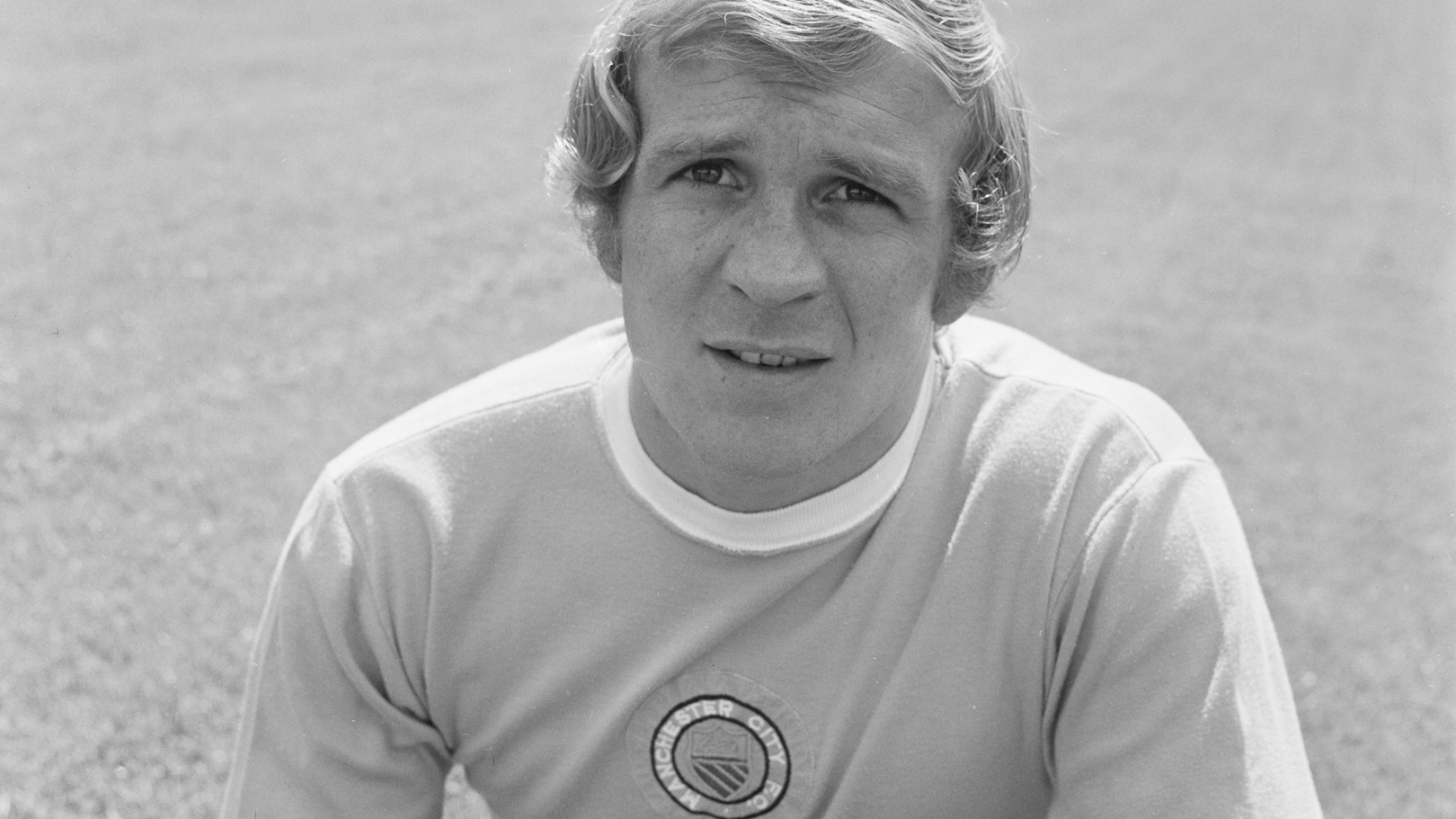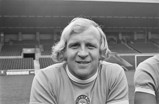Francis Lee was signed by Joe Mercer in 1967 in the hope the £60,000 paid to Bolton would help the Blues land the First Division title.
Lee wore the No.7 shirt for his debut against Wolves, replacing Stan Bowles who seemed to be coming into his own with four goals in four games but Mercer felt Lee was a better fit in his team.
Lee had a proven track record at Bolton where he’d made his debut aged 16 and been playing first team football for seven years. He’d also notched a very healthy 92 goals in 132 games for Wanderers.
An incredibly ambitious young man, he decided he wanted to leave Burnden Park and seek new horizons but his transfer request was refused by the club. Lee, demonstrating an independence and determination to look after his own interests promptly threatened to go on strike!
The board relented and when City made a firm bid, they reluctantly allowed Lee to join their near neighbours.
Lee was made for the City team and slotted in perfectly to the football and team ethic – he also added bite and swagger, not to mention his supreme self-confidence that Mercer and Allison wanted in their side and it wasn’t too long before the management and supporters realised that the 23-year-old Westhoughton-born forward had been the missing piece of the jigsaw.
Lee, along with Colin Bell and Mike Summerbee were a fearful trio for any defence to face –but throw in Neil Young and Tony Coleman and City were an attacking force to be reckoned with, full of quality endeavour and sheer bloody-mindedness.

Lee, though physically short and stocky in appearance, could more than hold his own and would give any defender a difficult 90 minutes, no matter what their size or reputation.
Feisty and fiery, he backed up guts with skill and intelligence and was soon a hero to thousands of City fans.
The Blues won eight and drew three of Lee’s first 11 league games and he scored eight goals as City sailed towards the summit of the table. Franny also volunteered to take penalties for the team and won most of them himself, though he was accused of diving in the box on many occasions – something he always denied, though it’s fair to say he knew how to draw fouls inside the box.
By the time City lifted the championship in May 1968, Lee had scored 16 in 31 games and it was his strike at St James’ Park on the final day of the season that effectively won the game and the title for Mercer’s men.
Bell, Lee and Summerbee were nicknamed the ‘Holy Trinity’ and the trio inspired more success the following year with a FA Cup final triumph over Leicester. Lee finished joint top scorer in the league.
A year later and it was a cup double for the Blues as they first lifted the League Cup and then the European Cup Winners’ Cup in 1970. Lee scored the decisive goal in Vienna (from the spot of course) to secure a 2-1 win and a first major European trophy for the club – that £60,000 was beginning to look like the bargain of the decade for City.
In what was a period of hard men in football, nobody bullied Franny Lee.
He finished top scorer again in 1970/71 and had his best ever season for the club in 1971/72 when City almost won the league title – just faltering slightly on the run-in/
Lee scored an incredible 35 goals in 46 league and cup games and converted a record 15 penalties along the way.
Off the field, Lee’s sharp business acumen ensured his was well on his way to becoming a millionaire while still a very young man and he was also and England regular, having played for his country in the World Cup finals in Mexico. He scored 10 goals in 27 appearances for the national team.
In 1972/73, the unorthodox forward was becoming restless at Maine Road and, despite finishing joint top scorer for the Blues again with his third total of 14 league goals in six seasons, the managerial upheavals that had seen Mercer initially moved ‘upstairs’ and Allison given more control of the team, but Big Mal quit after less than a year in charge and Lee was left wondering about his future at Maine Road.
Johnny Hart, Ron Saunders and then Tony Book all took turns in managing the club, meaning that after having just one manager for seven years, City had now had five in the space of two.
Lee, keen to secure a new deal with the Blues wanted more money and, with his track record, who could have argued against it? But his influence on the team – still strong - was not quite what it had been and he managed 10 goals in 29 league games during the 1973/74 campaign and when, three days before the start of the new season, Derby County offered £100,000 for his services, Tony Book didn’t stand in his way.
It was a wonderful move for Lee and for the Rams and, just as he had done in his first season with City, Lee was inspirational as Derby went on to lift the league championship in 1974/75 under the tutelage of the great Brian Clough.
Lee, desperate to prove a point to the club he still loved, also scored a belter on his return to Maine Road in Derby colours – it was typical of the man and the City fans who witnessed the goal didn’t know whether to laugh or cry.
He played on for one more season at the Baseball Ground before retiring to concentrate on his thriving waste paper business and successful racehorse stable. He would return to become chairman of City in the mid-1990s though things didn’t quite work out the way he’d hoped, he was an important part of moving the club forward.
It was also Francis Lee who brokered a deal to move City into a new home after the 2002 Commonwealth Games had finished, leaving behind Maine Road after 80 years of residence but giving the Club a stadium that could hold a third more in the process.
Francis remained a regular face on matchdays at the Etihad and remained close friends with Club Ambassador Mike Summerbee for more than 50 years.
Everyone at Manchester City passes their condolences on to the Lee family and friends at this very difficult time.
Fans can add their messages to our online condolence book available via the link below.







